Manuela Teresa Sousa Aguiar, an alumna of the University of Macau’s (UM) Department of Portuguese, has worked as a simultaneous interpreter at many historical events, official visits, and major international conferences over the past 30 years. Simultaneous interpreting is a mentally challenging job, but she loves it, saying it has helped her become an articulate speaker and an agile thinker. ‘I have never thought of changing my career. This is a job I was meant to do,’ she says.
Continuous Improvement of Professional Skills
Sousa Aguiar graduated from UM in 1996 with a bachelor’s degree in Chinese-Portuguese translation and now works as a translation consultant for the Directorate of Administration and Civil Services (SAFP). Both Sousa Aguiar and her father are Macanese1, while her mother is Chinese. ‘I have been educated in Chinese and Portuguese culture since I was a child and my parents gave me a Chinese name, 施佩玲,’ she says. ‘I even know how to burn incense when I pray to the gods in a temple.’
Growing up in a cultural and linguistic environment where the Chinese and Portuguese communities coexist in harmony, Sousa Aguiar was able to communicate fluently in both languages, which enabled her to land a job in the government as an interpreter after graduating from secondary school. As her workload grew, she realised that she needed to improve her interpreting skills, because her job involved diplomatic protocol, requiring sophisticated and precise wording. So she decided to pursue a bachelor’s degree in Chinese-Portuguese translation at UM, which she completed in 1996.
Sousa Aguiar was not the only one enrolled in the programme. A group of her colleagues followed suit. ‘We would go to the university together after work, commuting from Macao to Taipa, and then we would walk up the big slope, chatting and laughing all the way, too happy to feel tired,’ she says, eyes glimmering at the memory. She enjoyed learning with people she knew well and the fact that she was able to apply what she learned in her work. But it was not until she met her two mentors at UM—Prof Yao Jingming and Prof Lei Kun Teng—that she finally realised that interpreting was her calling. ‘They are both well-read authors in Macao. Their passion for education inspired me to want to pass on what I have learned to the younger generation,’ she says.
‘It was an assignment I will never forget.’
The handover of Macao to the motherland on 20 December 1999 was not only a moment of national joy for Chinese people; it was also an important milestone in Sousa Aguiar’s career as an interpreter. She was there at the handover ceremony, doing simultaneous interpreting between Chinese and Portuguese. ‘Before the handover, I was on the transition team of the Macao government, serving as the chief interpreter for the Portuguese side. I was very excited to witness the entire handover process and to be part of that history,’ she says. ‘On the day of the ceremony, I felt my years of training was preparing me for that moment, and I went all out in my interpreting. It was an assignment I will never forget.’
On the day of the handover, Sousa Aguiar witnessed the lowering of the Portuguese flag and the raising of the Chinese flag. Knowing that she enjoyed her work as an interpreter and that the future of the translation industry would be bright after the handover, she decided to stay in Macao. With a clear positioning of Macao as a service platform for trade cooperation between China and Portuguese-speaking countries, her workload became very heavy.
Today, Sousa Aguiar is well recognised in the translation industry. She received both the Medals for Professional Dedication and Merit from the Macao SAR government, in 2011 and 2019 respectively, in recognition of her achievements in—and contributions to—Chinese-Portuguese translation.
Advice for the Younger Generation
No matter how busy, Sousa Aguiar returns to UM from time to time to work as an interpreter and teacher for some of the translation courses. Whenever a new student attends one of her lectures, she is quick to proclaim that proficiency in interpreting cannot be achieved by relying on one’s talent. She would say to the students: ‘Every time you get a new assignment, you have to spend a lot of time studying and preparing, and there are no fixed working hours. Without passion, you won’t last long in this profession.’ Hardly the welcome speech one would expect on the first day of classes, but it works wonders in waking students up to reality and in keeping them motivated.
Sousa Aguiar believes one learns best by teaching others. ‘Only by understanding my own potential and shortcomings can I continue to improve and become a better interpreter each day. I want to contribute to Macao’s role as a cooperation platform between China and Portuguese-speaking countries.’
Note: ‘Macanese’ refers to a group of people who were born and raised in Macao and who speak Portuguese as their first language and identify with the Portuguese culture as their native culture.
Source: My UM e-version
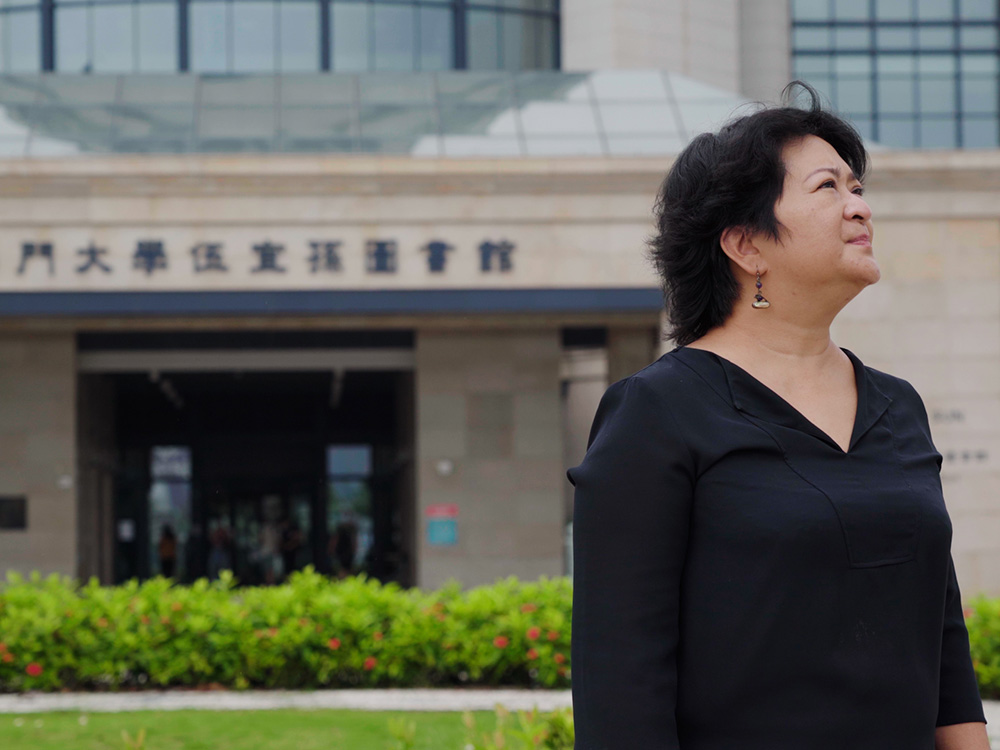
Manuela Teresa Sousa Aguiar
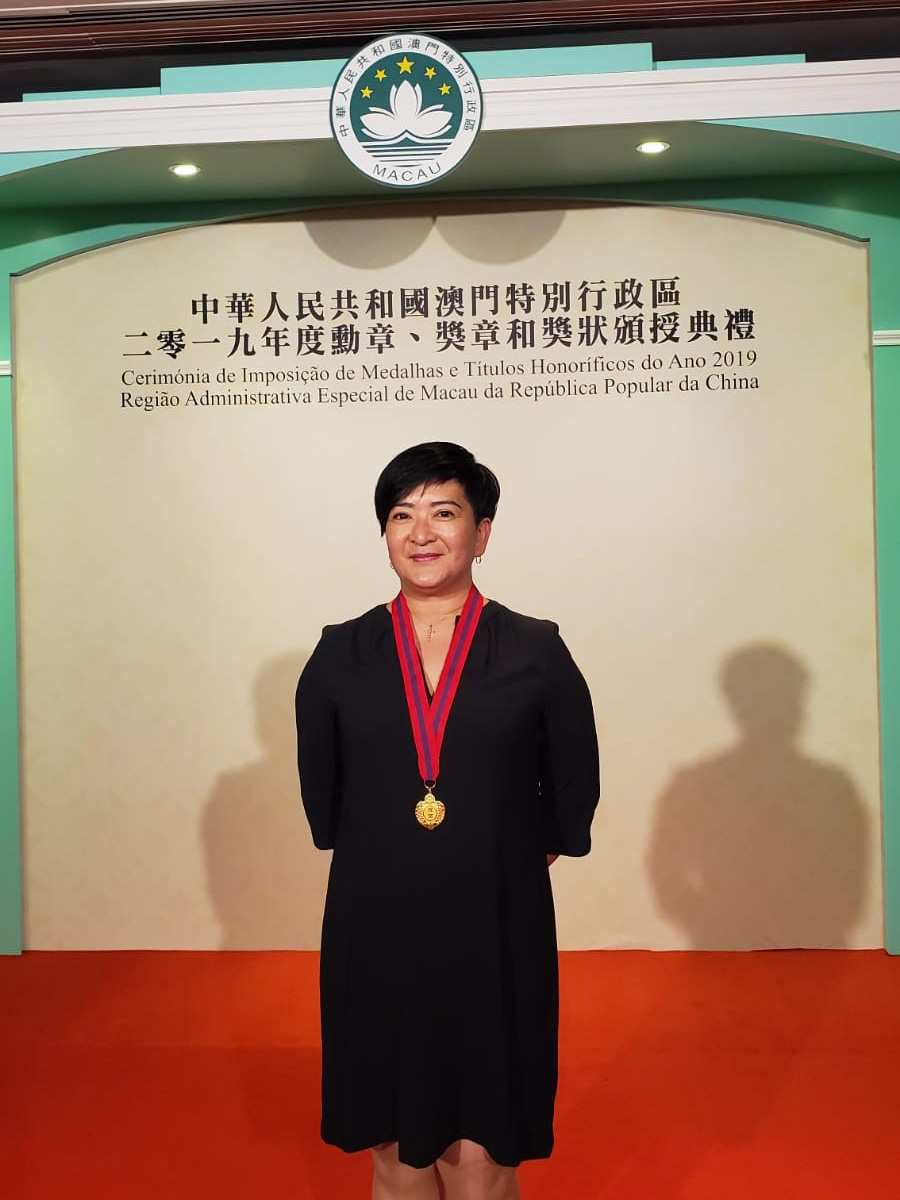
Manuela Teresa Sousa Aguiar is well recognised in the translation industry
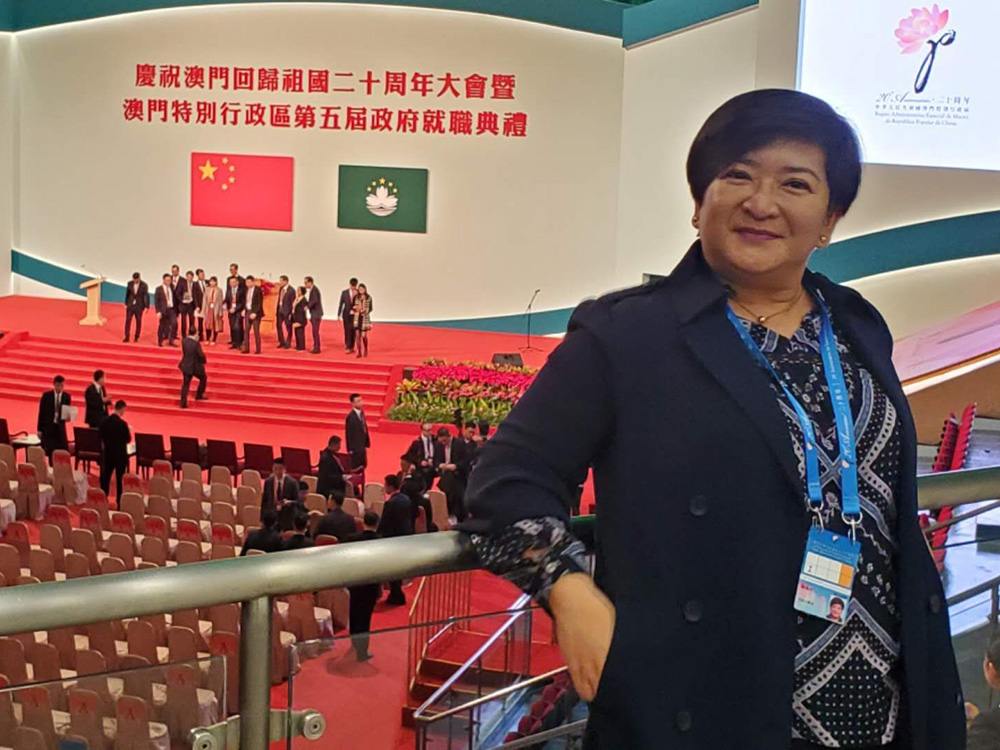
Manuela Teresa Sousa Aguiar has witnessed many historical events in Macao
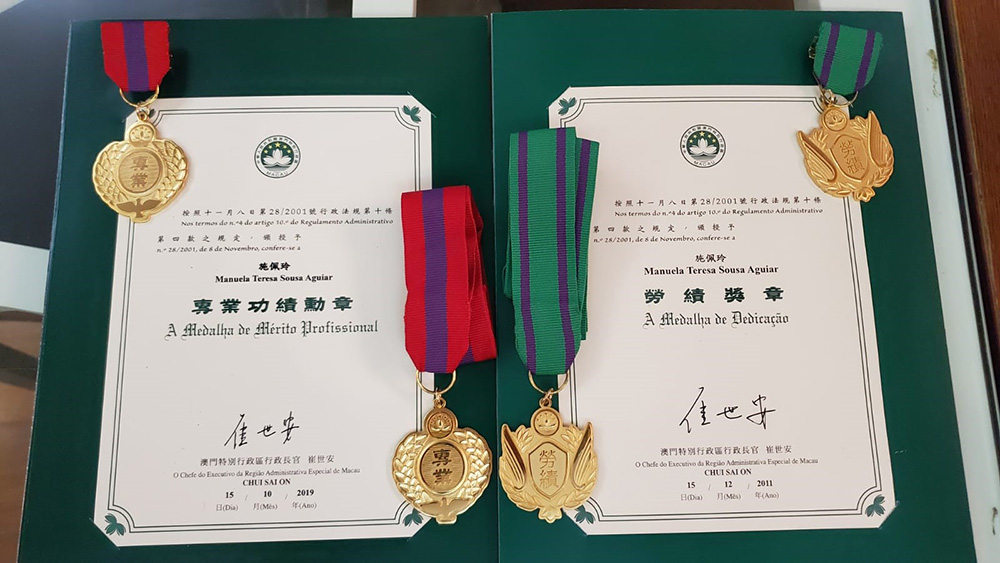
Manuela Teresa Sousa Aguiar was a recipient of the 2011 Medal for Dedication and 2019 the Medal of Merit – Professions from the Macao SAR government
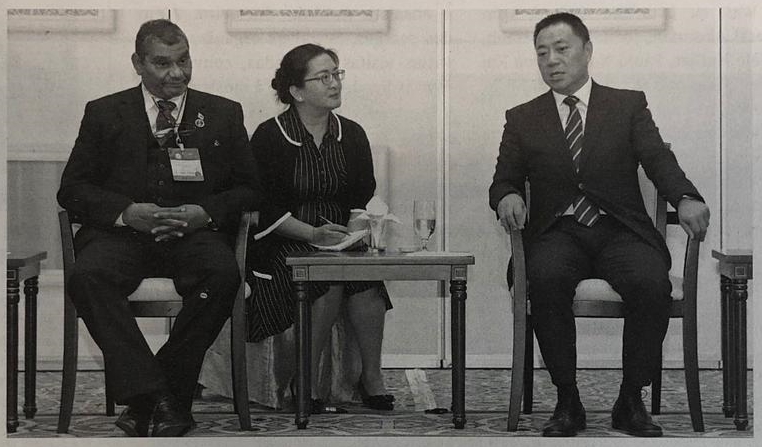
Manuela Teresa Sousa Aguiar has been a Chinese-Portuguese interpreter for over 30 years. In the picture, she is interpreting for the representative of Mozambique (left) and the the
